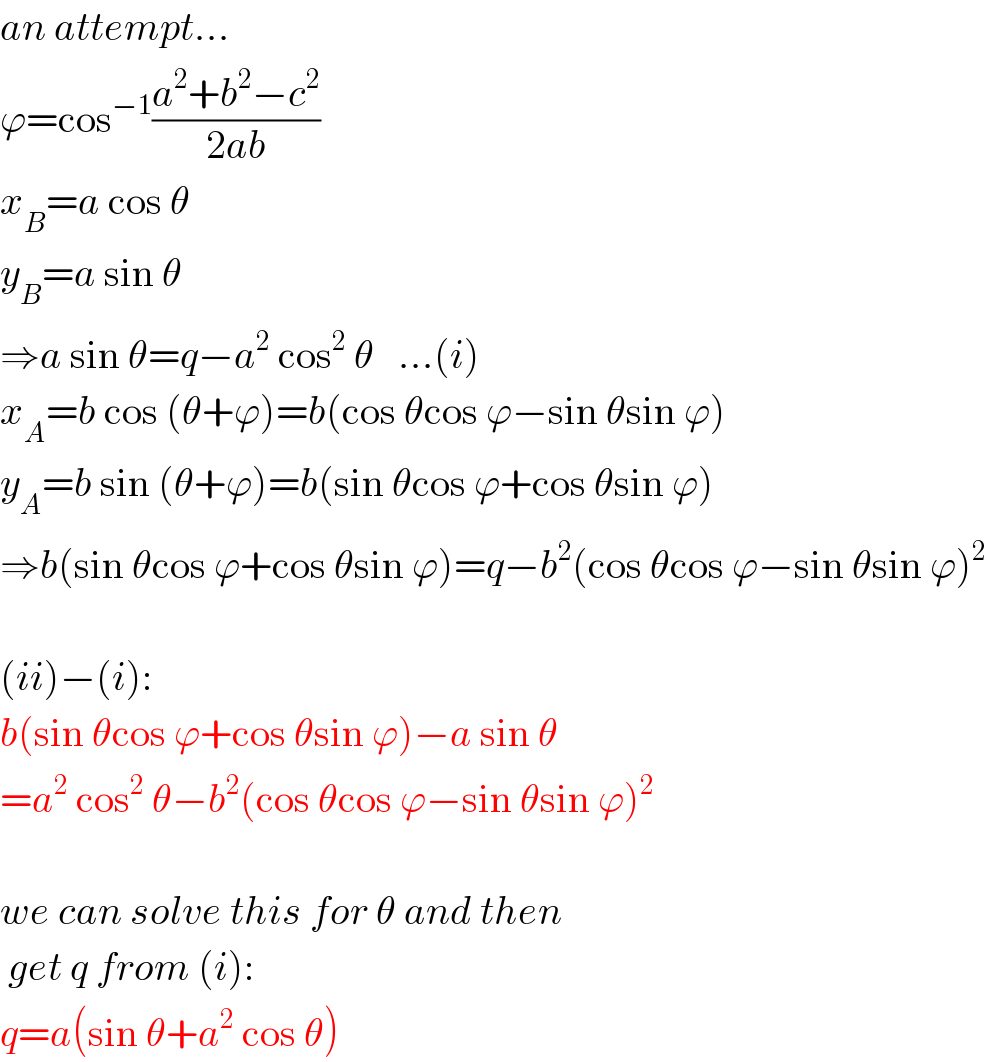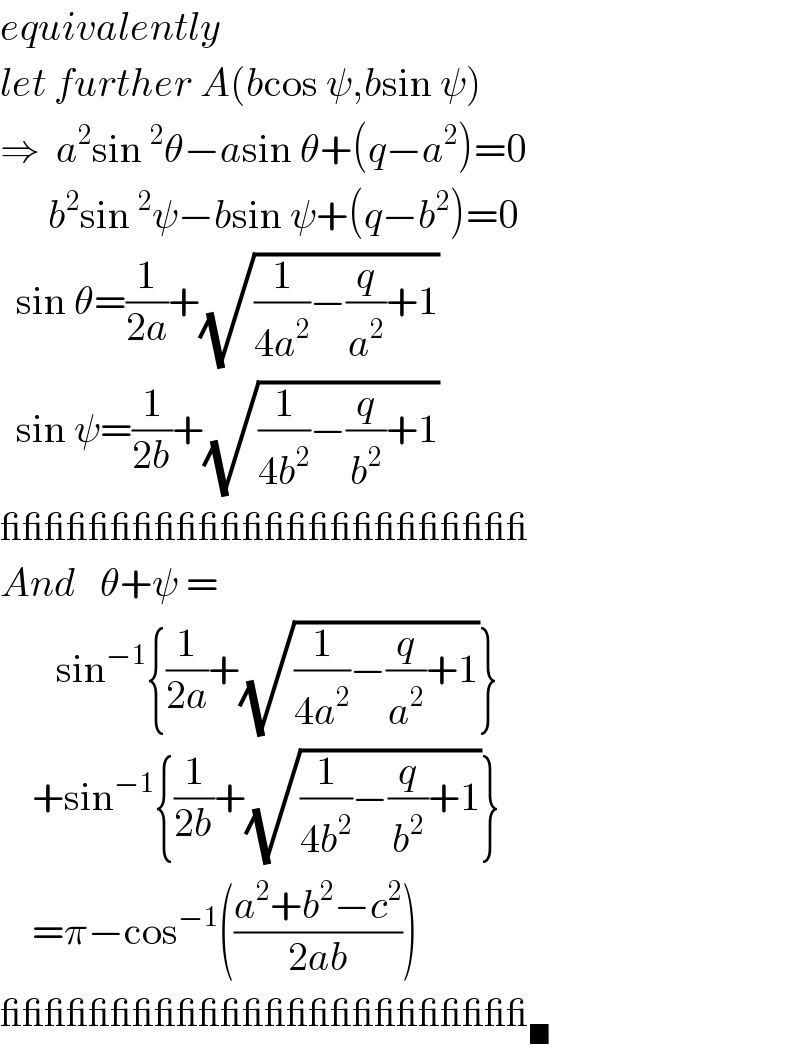
Question and Answers Forum
Question Number 81854 by ajfour last updated on 16/Feb/20

Commented by ajfour last updated on 16/Feb/20

Answered by mr W last updated on 16/Feb/20

Commented by mr W last updated on 16/Feb/20

Commented by ajfour last updated on 16/Feb/20

Commented by mr W last updated on 16/Feb/20

